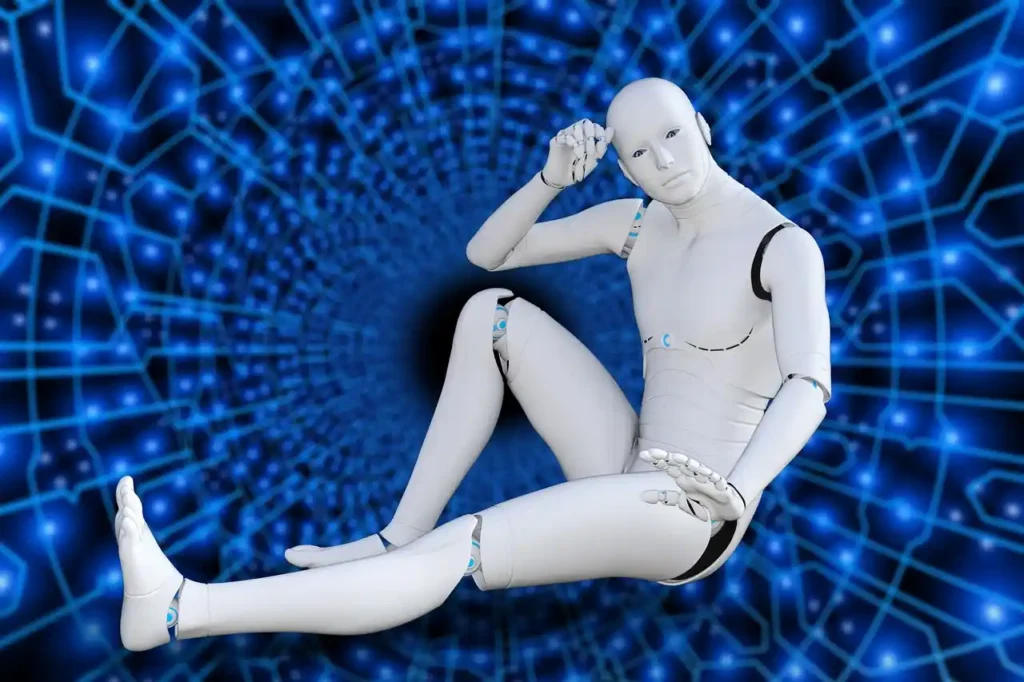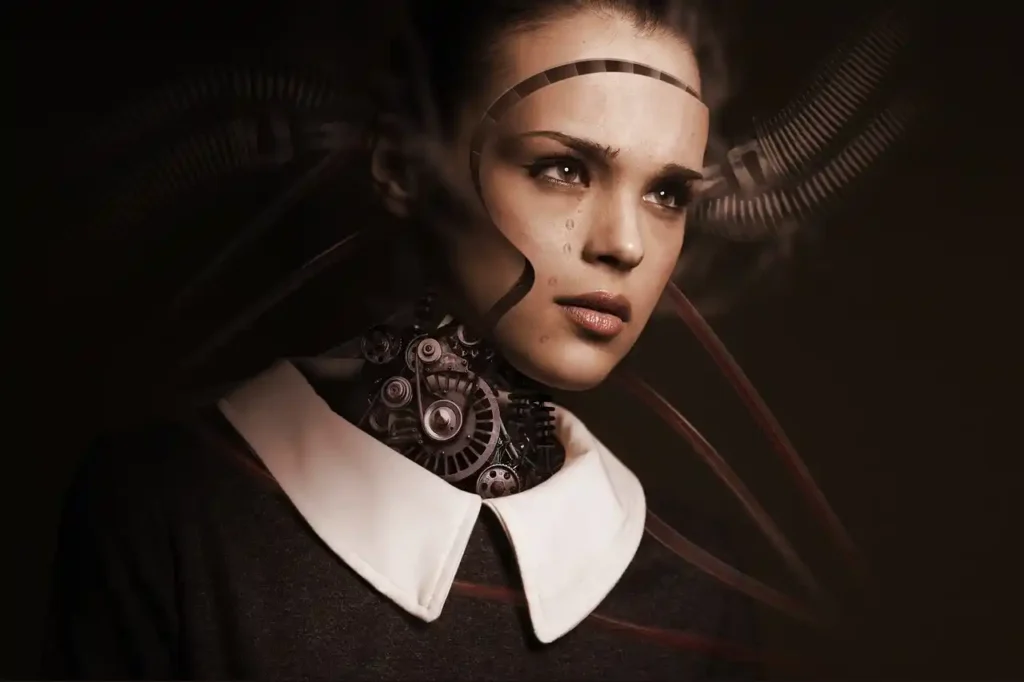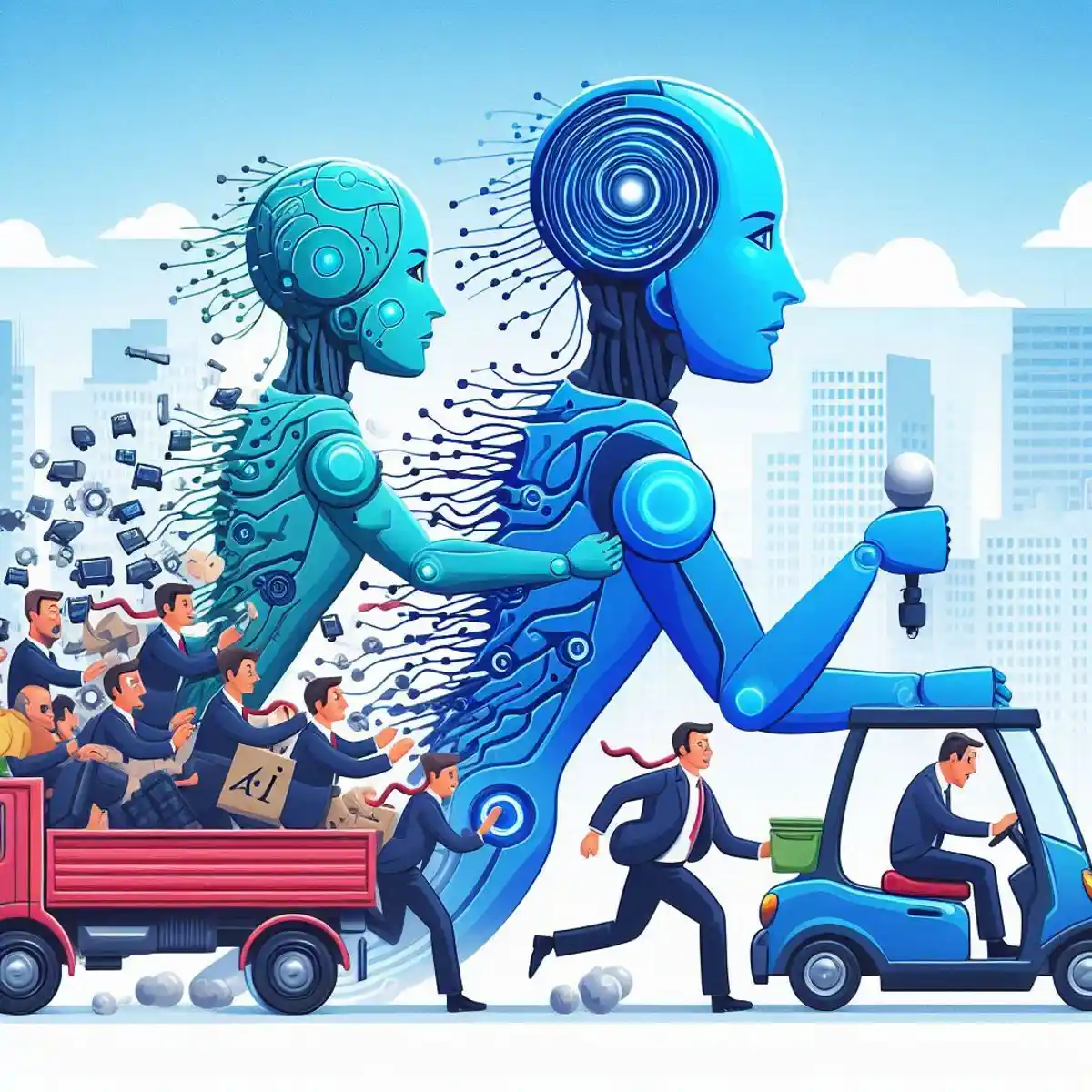So here I’m again—and today we’re talking about how the future of your job is considering how Artificial Intelligence (AI) is fast changing everything.
By the way it looks and feels kinda weird- we ever imagined AI could change our careers at this speed.
Anyway, AI is the reality and boy! Not even Sam Altman is sure where we’re going when it comes to AI and our jobs.
On my part, I’ve been thinking quite hard– or do I say obsessing a little—about how AI will make our evolve as it becomes not just smarter, but super intelligent (Oh yes, Altman says Artificial Superintelligence has already arrived).
Okay, because I don’t want you to be caught flatfooted, I did some homework—some in-depth research from various credible papers, reports, and even involved AI itself (why not?)- and I have some solid insights about where we’re headed.
In short, I’m trying to answer the question of the HRs, doctors, marketers, teachers, mechanics, engineers, even the entrepreneurs of tomorrow… how will these roles transform over the coming 5, 10, or 15 years?
Here is how your job will look like in the coming years (sadly, some jobs are just about to go the dinosaur way- extinct!):
What jobs are AI taking over: How AI will change jobs
HR (Human Resource Professionals)
Dear HR folks, AI is going to take over the boring parts of your job..
Think:
- Employee onboarding
- Candidate Shortlisting
- Performance appraisals
- Interview Scheduling
Yeah, AI is at the moment doing them more efficiently and ,of course, without getting tired.
But there’s no need to panic – not just yet.
Because AI won’t replace your God-given ability to inspire, motivate talent, or create the all-important healthy team culture (These remain very human.)
But looking further ahead, you’ll probably find yourself moving into roles like:
- Talent management specialist/ Talent Development Specialist/ Talent Development Specialist
- Motivation & wellness advisor
What is crucial is to make sure you’ll not be left behind—train how to work best with AI.
In other words, you’ll must know how to properly prompt your AI-Powered HR bots to execute tasks such as shortlisting the best candidates or generate performance insights from the employee data.

Medics, Nurses, and Other Healthcare Professionals
Are you in healthcare?
If yes, smile- there’s a silver lining..
You see:
Our bigger population is rapidly aging(we’re living for more years than in the past).
Meaning?
Well, demand for good healthcare is on an upward trajectory.
So if you’re in any of these careers:
- Nursing
- Counselling
- Social work
- Caregiving
…your job is currently safe-ish.
In contrast, you need to work on your skills (AI fluency), especially if you are working in radiology or diagnostics.
Why?
It’s already an open secret that AI is now reading images and scans such as X-rays and MRIs way better than us, humans- and it’s giving accurate full reports in mere seconds.
And what about doctors and surgeons?
Good news! You’re still going to be needed for a long time anyway, but you’ll be closely collaborating with AI tech for duties such as diagnosis and even treatment planning.
Note that It’s a partnership, not a complete takeover…yet.

Engineers
My engineer friend, your world is getting WILD. Very.
To give you a glimpse of things, here are just a couple of future job titles (I bet you’ve never heard of):
- AI-Integrated Systems Engineer
- Cognitive Systems Engineer
- Neural Interface Engineer
- AI Reliability Engineer
- Generative Design Engineer
And I haven’t even told you about engineers designing smart roads, self-driving cars (AI in autonomous vehicles is nearly going mainstream), or brain-machine interfaces.
Still on engineering, if you’re a civil, mechanical, or electrical engineer, AI masterly is no longer an option- It’s your only survival strategy!
So learn predictive analytics, data integration, and AI modeling tools (for engineering) fast.
Mechanics(automotive technicians)
Mechanics(automotive technicians), this is not going to do your mood any good…
Now, as we swiftly shift to electric (and self-driving cars), we’re saying goodbye to your grease monkey days.
The truth is, you’ll need to re-invent yourself as any of the following (examples):
- EV Technician
- Vehicle Systems Analyst
- Smart Diagnostics Expert
Sure, there’ll still be tires to change and suspensions to tweak, but your competition will now include robots and highly specialized techs.
So, it’s time to level up(once again)!.
Education Professionals (Teachers, Trainers, Professors)

This one (sob, sob…)hurts. I mean, our teachers are our biggest heroes.
But… if your major job is delivering content- many traditional teachers dwell here mostly- AI can exactly do that.
More concerning, it’s doing it remarkably faster, in more languages(not just English or French), and 24/7!
So where do you go from here?
Now, to survive and even become more invaluable, you must repackage yourself as a:
- Learning Architect – you will be designing personalized learning journeys.
- Mentor & Coach – you will be guiding human growth, not just delivering routine info.
- Learning Experience Designer – you will be curating emotional, collaborative, project-based education.
Bottom line: future teachers are not going to be kicked out by AI—they’ll instead be sent packing by people who can use AI for education tools well.

Finance Professionals, Admins, Clerks, Bank Tellers
Let’s not try to hide….
If your day job involves working with spreadsheets, doing data entry, or any other form of repetitive numbers crunching—there’s no running away from AI (it’s so far outperforming humans- by a country mile).
The same fate awaits clerical workers- nearly all- and administrative assistants
So think of what will be doing to put bread on the table if you are in these roles:
- Accountant
- Bookkeeper
- Payroll officer
- Bank teller
- Cashier
- Admin assistant
- Data entry clerk
- Post office clerk
Question: How do you stay in the game?
My advice: Transition into positions that involve more decision-making, emotional intelligence, advisory, or even strategic planning—or related things that AI can’t do (yet).
Example:
Big 4 accounting firms such as PwC and Deloitte are using AI to automate key audit processes, yet they have been recruiting more data-driven consultants/advisors than ever.
How AI will change jobs for Legal assistants / Paralegals
Another group on very thin ice is paralegals and legal researchers.
You see, AI is already performing tasks like writing contracts, scanning lengthy law manuals, and doing detailed research at warp speed.
The result?
Law firms might very soon need just one sharp legal mind… plus a good AI system to do everything.
I know you’re wondering what next..well, AI is opening doors to entirely new legal roles including Legal Strategists.
So get creative, learn AI, and reinvent yourself.
How AI will change jobs – Other jobs AI is taking over
Let’s do a quickfire list of jobs AI is actively replacing or is about to:
- Door-to-door salespeople – digital marketing is in
- Street vendors & newspaper sellers – AI news apps are here
- Graphic designers – only top-tier creatives will survive
- Claim adjusters & investigators – automated systems already outperforming humans
- Telemarketers – AI voice bots are replacing call centers
- Auditors – AI-assisted auditing is growing
Keep in mind that big human inventions have always come and changed things…but it is those who act quickly and swim with the evolution that remain.

Jobs resistant to AI take over (as of now)
Breathe easy if you’re in one of these roles—they’re still considered relatively safe:
- Farm workers
- Construction workers
- Delivery drivers
- Salespeople (who understand AI marketing)
- Food processing staff
- Nurses
- Social workers & counselors
- Teachers (who use AI well)
- Environmental engineers
- Renewable energy engineers
The point is, human hands and hearts are still needed in these jobs (for now).
Jobs AI has created / is creating
Now for some very good news! AI is also creating amazing new roles.
Here are a few:
- AI & Machine Learning Specialists
- AI UX/UI Designers
- AI Product Managers
- AI Developers & Engineers
Even jobs that didn’t exist 5 years ago—like Prompt Engineers and Ethics Designers—are trending
Tech-related jobs that are safe
Still on how AI will change jobs, if you’re in tech, you’re likely ahead of the curve.
But don’t get comfy—keep upskilling.
Here are some of the safe (again for now) jobs:
- Big Data Specialist
- Fintech Developer
- Software/App Developer
- Cybersecurity Expert
- IOT Specialist
- Data Analyst
- Blockchain Developer
The only constant in tech is change therefore stay curious, stay learning.
What skills will be most in-demand once AI takes over everything?
Here’s the twist: the most human skills will soon be the most in-demand.
Think about it:
- Empathy
- Critical/analytical thinking
- Emotional intelligence
- Storytelling & humor
- Lifelong learning
- Creativity & inspiration
- Resource mobilization
To put it in another way, in a world ruled by machines, being human will be your biggest superpower.
For that reason, teach your kids the above skills. And learn them yourself.
Frequently Asked Questions (FAQs)
Q: How many jobs will AI replace by 2030?
A: McKinsey says around 400 to 800 million jobs may vanish by 2030.
The same estimate says millions more new ones could be created so displaced individuals could move on into new careers(8-9% of the 2.66 Billion Global workforce might be in brand new careers).
Do not forget estimates vary – for instance, world economic forum future of jobs report (2023) predicts that 83 million jobs could be gone globally (by 2027) with 69 million fresh jobs being created which brings the net job loss to about 14 million.

Q: What kind of jobs will AI replace?
A: Mostly white-collar, repetitive, computer-based roles. Think clerks, junior writers, legal assistants, etc. But blue-collar jobs such as assembly-line workers could next be in line as intelligent robots are fast evolving to a level where they could do a lot of manual labour.
How AI will change jobs – Final Words
Let me end with this friends:
Imagine a future where job interviews include a test—not for Excel, but for AI literacy.
Yes- “Can you work with AI?” will be the new “Can you use a computer?”…
So don’t sit back and wait to be replaced. Re-skill. Upskill. Cross-skill….do whatever it takes to stay relevant.
Because AI is not just coming—it’s already here. The only question is:
Are you ready to evolve?
The write is an AI researcher and enthusiast who writes for aiknowzone.com

